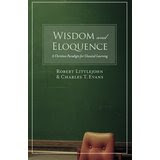She's approaching the end of the pier now.
I fear she will get too close.
I want to scream to stop
her, but it is too late
for the voice's effect.
Too late to retrieve
the years, to find
the signs of a life-line,
to read the messages
unreceived. The water
shrouds her quickly, the waves
wash her face undefined, the eyes
little more than oysters,
and the gray casket closes.
I reach out--
as though I might reverse it,
but her arms stay by her side,
and I am sinking faster
with the weight of our demise.
I look up through the murkiness to see
she's walking away from the pier now.
ZEDS Blog
I enjoy the essays of Dafoe, Addison, and Samuel
Johnson, all of which were published in pamphlets. Pamphlets were in vogue from 1650-1800, providing writers a forum to express views on politics, society, religion, and art. This has been revived in modern times in the form of blogs.
This is now a slight revamp of my blog that started in 2008.
My reading has become a little more specialized, although previous books commented on show I was heading this direction. At this point I will review mainly Christian texts or other texts from a Christian perspective. I intend to post more regularly with book reviews.
I consider reading and writing as part of the spiritual
journey toward maturity and, I hope, wisdom. These are postings of what I’m learning along the way.
Rod Zinkel, August 19, 2015
Friday, October 31, 2008
Saturday, October 25, 2008
From Dr. Herod's Readings: The Lighthouse
I met a weathered man as old
as the lake of Michigan.
He keeps Kewaunee's lighthouse lit,
he says as long as he can.
"I'm not goin' anywhere,
until God take me home.
I'm stayin' here as long as the winds
and waves are seethin' foam."
He goes by Elbie Scirvener,
some call him Skinner,
cause he's always filleting fish,
every day for dinner.
He lives a lonely life, you know.
But he's determined to.
He says it's for security...
if only people knew.
The cargo ships that sail the lake
still rely on the light,
to know the danger of the shore,
to keep away at night.
But Elbie knows another way
the beacon's rays protect,
they keep at bay the sailor's ghosts
that on the lake shipwrecked.
They nightly try to come aground,
to haunt the docks and bars,
to trim the town in slimy seaweed,
and leave ailwives in the cars.
A crew of mischievous men they are,
with no respect for land.
They'll damage any house or lot,
and bury it in sand.
Retired ex-captain Scrivener
credits the light and horn
for turning back sea-faring ghosts,
as they were always warned --
"Approach the light, it will be your end,
to the darkness return.
The horn will tend your funeral,
repent and head astern."
as the lake of Michigan.
He keeps Kewaunee's lighthouse lit,
he says as long as he can.
"I'm not goin' anywhere,
until God take me home.
I'm stayin' here as long as the winds
and waves are seethin' foam."
He goes by Elbie Scirvener,
some call him Skinner,
cause he's always filleting fish,
every day for dinner.
He lives a lonely life, you know.
But he's determined to.
He says it's for security...
if only people knew.
The cargo ships that sail the lake
still rely on the light,
to know the danger of the shore,
to keep away at night.
But Elbie knows another way
the beacon's rays protect,
they keep at bay the sailor's ghosts
that on the lake shipwrecked.
They nightly try to come aground,
to haunt the docks and bars,
to trim the town in slimy seaweed,
and leave ailwives in the cars.
A crew of mischievous men they are,
with no respect for land.
They'll damage any house or lot,
and bury it in sand.
Retired ex-captain Scrivener
credits the light and horn
for turning back sea-faring ghosts,
as they were always warned --
"Approach the light, it will be your end,
to the darkness return.
The horn will tend your funeral,
repent and head astern."
Sunday, October 19, 2008
Diversity Without Unity is Self-defeating
Next year is going to be a challenge, as I have agreed to be a facilitator of the diversity modules in the business office. I've just come out of our 2nd module for this year, disagreeing with a premise pronounced in the class. The statement was made that culture is "how we think and act differently." I completely disagree. A culture cannot be defined except by how we are alike. If each of us does our own thing, and purposely differ from everyone else, (which is actually impossible because we are all alike in that we are human), we would have no culture because there would be no similarities. It would only be a bunch of individuals. If we say America is a diverse culture, it is only because we are first Americans, citizens of one country, and in so being, have certain similarities, at least in knowledge; then we can then speak of differences. Someone pointed out in the class that there is an American culture and a Chinese culture, and they are different. I agree. My point is they are not the same culture; that is why we differentiate one as American and one as Chinese. And we are not talking just about difference of race; that is a mistake often made in public debate. Adults know there are many differences between the cultures of West and East. If we speak of humanity, then, again, we are speaking of our similarities. I find the stress on diversity somewhat self-defeating; if it is to build better race and cultural relations, why do we not speak of how we are alike, rather than dwell on differences? By dwelling on the differences we are, I think , building walls.
I come from an arts background, where people do try to be different from everyone else, where most, even including myself, try to build a culture of one. Only a month or so ago I wrote on the subject of we can choose our own cultures, and build a culture of one. There is truth in that. But it comes dangerously close to saying that I need not have any part in society. Believe me, I value differences in people. I like to think everyone is capable of becoming other than run of the mill, or, in other words, pulp. But my background shows me how it can be difficult to build a society of people who are like minded in wanting to repel themselves from everyone else. The reason I can say it was a culture is because we all valued individuality, and the arts. And it was knowledge and experience in the arts that brought us together. We could respect each other’s art, even if we disagreed. From that experience I know that the similarities need to be emphasized first, then we can speak of differences, and teach each other the value we have on our differences. If we speak of the value we have in our own idiosyncrasies, then others may learn the value of it. If I set myself apart from everyone else, which I have done at times purposely, at times quite unintentionally, others will often see it as I set myself above them. For instance, I knew a student in a lit class that always wore purple, every day. No doubt some made fun of him, and in general, people were leery of him, at least hesitant to approach him. But someone in class asked him why. He explained that the color had spiritual meaning. I wish he had more time to explain before class. The person who asked him showed courage. The curious didn't necessarily judge him for the difference, but certainly noticed it, and asked, sincerely, why he had this particular way of dressing.
In this class, in which I will be given a rather short text to use for the 30 minute session, I will add stories of other cultural approaches. Just the knowledge will compel people to try to relate it to what they already know. The class is for healthcare workers and office staff, so it would be best that I use examples of how other cultures treat the same issue, such as healthcare, or health insurance, etc. If you would have examples or stories yourself, I would like to know them. Please comment on this blog or e-mail me. Thanks for reading.
I come from an arts background, where people do try to be different from everyone else, where most, even including myself, try to build a culture of one. Only a month or so ago I wrote on the subject of we can choose our own cultures, and build a culture of one. There is truth in that. But it comes dangerously close to saying that I need not have any part in society. Believe me, I value differences in people. I like to think everyone is capable of becoming other than run of the mill, or, in other words, pulp. But my background shows me how it can be difficult to build a society of people who are like minded in wanting to repel themselves from everyone else. The reason I can say it was a culture is because we all valued individuality, and the arts. And it was knowledge and experience in the arts that brought us together. We could respect each other’s art, even if we disagreed. From that experience I know that the similarities need to be emphasized first, then we can speak of differences, and teach each other the value we have on our differences. If we speak of the value we have in our own idiosyncrasies, then others may learn the value of it. If I set myself apart from everyone else, which I have done at times purposely, at times quite unintentionally, others will often see it as I set myself above them. For instance, I knew a student in a lit class that always wore purple, every day. No doubt some made fun of him, and in general, people were leery of him, at least hesitant to approach him. But someone in class asked him why. He explained that the color had spiritual meaning. I wish he had more time to explain before class. The person who asked him showed courage. The curious didn't necessarily judge him for the difference, but certainly noticed it, and asked, sincerely, why he had this particular way of dressing.
In this class, in which I will be given a rather short text to use for the 30 minute session, I will add stories of other cultural approaches. Just the knowledge will compel people to try to relate it to what they already know. The class is for healthcare workers and office staff, so it would be best that I use examples of how other cultures treat the same issue, such as healthcare, or health insurance, etc. If you would have examples or stories yourself, I would like to know them. Please comment on this blog or e-mail me. Thanks for reading.
Labels:
business,
culture,
diversity,
healthcare,
office
Subscribe to:
Posts (Atom)
Calendar
Chapbook: Two Natures
The Neville Museum series has published a chapbook of 15 of my poems. They are of human and spiritual natures. Here are two poems from the book:
Two Natures
On still water of the pond
two natures you may notice--
where scum has been gathering,
there also grows the lotus.
One Way
There's a boy
who stands knee-high
to a July cornstalk.
He stares one way
down the dirt road
his mother has gone.
He find Fortune
has desrted him,
like the poverty-stricken,
society-forbidden parent.
"I can't take care of you," she said.
I am the child who mirrors
his mother's tears without knowing why?
Two Natures
On still water of the pond
two natures you may notice--
where scum has been gathering,
there also grows the lotus.
One Way
There's a boy
who stands knee-high
to a July cornstalk.
He stares one way
down the dirt road
his mother has gone.
He find Fortune
has desrted him,
like the poverty-stricken,
society-forbidden parent.
"I can't take care of you," she said.
I am the child who mirrors
his mother's tears without knowing why?






